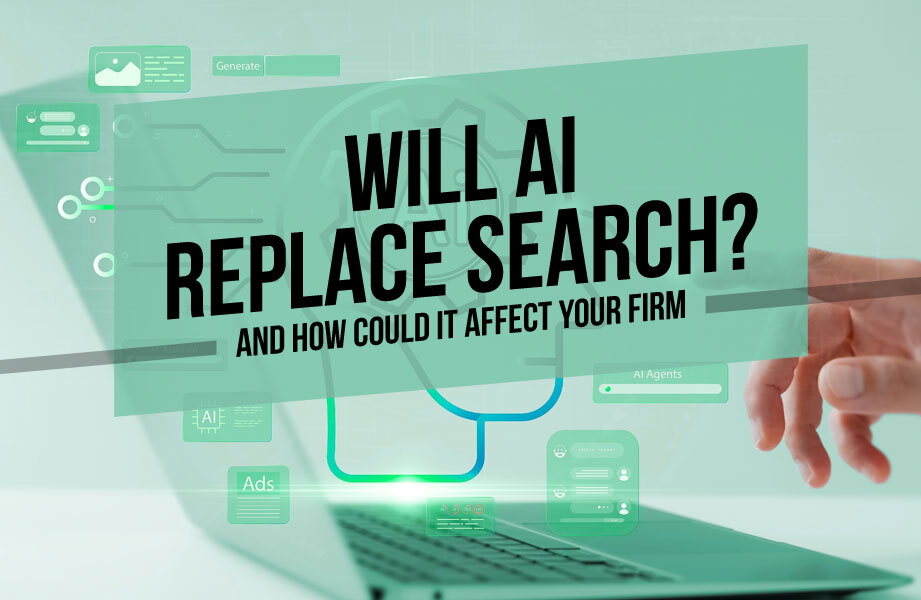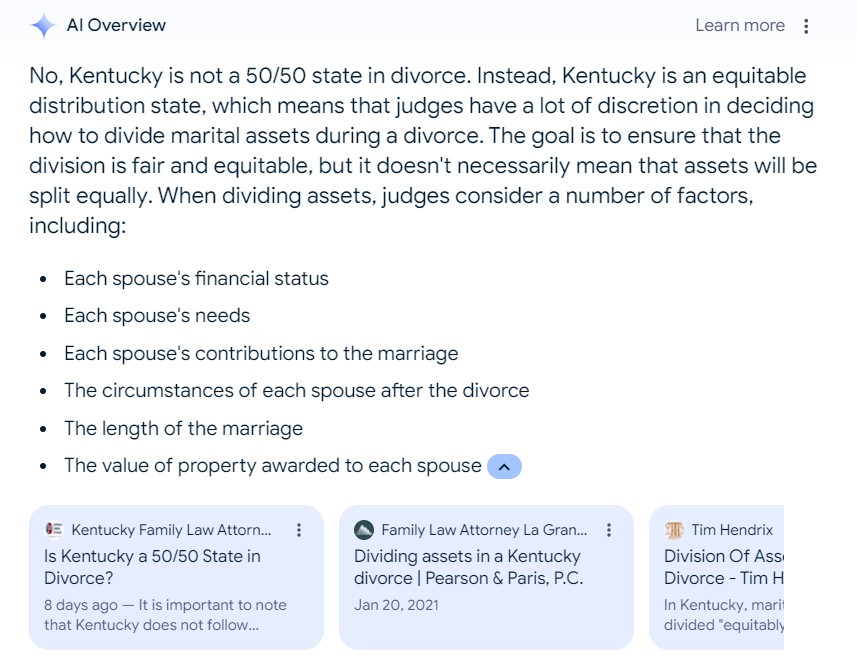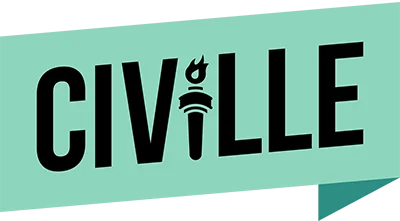
For the better part of two decades, if you wanted to know something, you “Googled it.” Traditional search engines became the gateway to the Internet. But now, tools like ChatGPT, Google’s own Gemini, and the increasing presence of AI-generated summaries directly in our search results (like Google’s AI Overviews) are making many of us wonder: Is the era of traditional search ending? And if so, what does that mean, especially for law firms like yours that rely on being found online?
The way search evolved in the first place wasn’t just a technical marvel. It was always a culmination of decisions between people (how we search), algorithms (how results are ranked), and marketing (how businesses reach us and, frankly, how search engines make money). That last part – the marketing and advertising engine – has always paid the bills in this relationship. It’s the economic foundation upon which “free” search has been built. This brings us to our first question.
If AI Replaces Search, Who Will Pay?
This brings us to a critical question: If AI-driven platforms become the primary way we seek information, how will they be funded? Suppose we continue with the current model where access to information is largely free to the user. In that case, AI, like the ChatGPTs and Geminis of the world, will likely have to be made free (or freemium) at the point of use for the masses, with ads making up the difference.
We’re already seeing early versions of this. AI tools are being offered in tiered subscriptions, with free versions often having limitations. Google is experimenting with ads within its AI Overviews. The challenge for these platforms is significant. Generative AI is computationally expensive. It costs a lot more to generate a conversational answer or a detailed summary than it does to serve a list of links. Finding a sustainable monetization strategy that doesn’t alienate users accustomed to free search is a high-stakes game. Hybrid models, usage-based pricing, and value-based pricing are all being explored in the broader AI industry, but how this translates to a mass-market search replacement is still an open question.
Google’s AI Overviews: A Glimpse of the Hybrid Future?
In many ways, Google is already doing this with AI Overviews and its broader AI integration into search. These AI-generated summaries appear at the top of the search results page (SERP), aiming to provide immediate, comprehensive answers synthesized from multiple sources.
Studies indicate that a significant number of users notice and read these summaries, especially younger, urban demographics. While classic search still dominates for general information searches, AI search is gaining traction with many users, particularly Gen Z, using AI tools for at least some of their searches.
Quick Look at Google’s Conversational “AI Mode”
Beyond the AI Overviews you might already be seeing, Google is experimenting with an even more interactive and conversational search experience, often referred to as “AI Mode.” This isn’t just about getting a quick summary. It’s designed to turn Google Search into more of a research partner, especially for complex or multi-step questions.
Imagine asking Google something like, “What are the key differences between starting an LLC and an S-Corp for a law firm in Wisconsin, and what are the typical ongoing compliance requirements for each?” Instead of just a list of links, AI Mode aims to provide a synthesized, comprehensive answer, drawing information from various web sources. You can then ask follow-up questions to dig deeper, and the AI will remember the context of your conversation.
Google is building this with its advanced AI and integrating it with its vast data resources, including local business information and even product details.
While still evolving and initially an opt-in experiment, AI Mode signals a clear direction towards a more interactive, AI-driven search future. The emphasis for law firms will be on providing high-value, expert content that makes your firm an indispensable source for the AI to learn from and reference.
The Future of Legal Research: AI-Powered Tools and Techniques
The Market Decides: How People Want to Interact
This is where the human element comes in. It’s about how people will and want to interact with this new technology. Do users prefer a conversational answer from an AI, or do they still want a list of links to explore themselves? Early data suggests a mix. While some users find AI summaries incredibly useful for quick answers, a nearly equal number skip them and go straight to traditional results, or they use the summary as a starting point and then check the cited sources. For complex queries, generative AI platforms have shown higher user satisfaction and faster task completion in some studies. However, for simple, factual searches, traditional search often remains the preference.
The trust factor is also huge. Skepticism about the accuracy and potential bias of AI-generated summaries persists, especially among older users. The “black box” nature of some AI can be a concern.
The Inevitable Shift: How Could This Affect Your Law Firm?
So, if this shift is, as you say, inevitable, but no one knows for sure what that landscape will look like, what does it mean for your law firm’s online presence and client acquisition strategies?
Changes in Website Traffic
The most immediate concern is a potential decrease in click-through rates (CTR) to individual websites. If AI Overviews provide a complete answer, users might not feel the need to click on your firm’s link, even if your site was a source for the AI’s answer. Some studies have already shown significant drops in organic traffic to sites with a lot of informational content since the broader rollout of AI Overviews.
The Evolving Role of SEO
Search Engine Optimization won’t disappear, but it will transform. The emphasis will likely shift even more towards:
- E-E-A-T (Experience, Expertise, Authoritativeness, Trustworthiness): Google’s AI needs to pull from high-quality, trustworthy sources. Demonstrating deep expertise and clear authority in your niche will be paramount.
- Content for AI Consumption: Structuring your content with clear headings, FAQs, and schema markup will help AI models understand and potentially cite your information.
- Optimizing for Conversational Queries: People interact with AI using natural language. Content should address these conversational, long-tail questions.
- Becoming an Authoritative Source: The goal might shift from just ranking #1 to being a primary, citable source within AI-generated answers.
Read More: Why Relying on AI Content Can Hurt Your SEO: A Case Study
New Opportunities for Visibility
While clicks might decrease, being cited as a source in an AI Overview can still provide significant brand awareness and establish your firm as an authority.
Impact on Local Search
For law firms, local search is critical. How AI Overviews integrate with Google Business Profiles and local map pack results will be important to watch. Consistent branding and structured data across all platforms will be key.
The Undiminished Need for High-Quality, Unique Content
If AI can easily synthesize basic information, your firm will need to create content that offers unique perspectives, in-depth analysis, first-hand experiences, and answers complex “how” and “why” questions rather than just “what” questions. This type of content is harder for AI to replicate and more likely to be valued by users seeking deeper understanding.
New Advertising Avenues
As mentioned, Google is already experimenting with ads in AI Overviews and exploring ads for its conversational “AI Mode.” This could mean new ad formats and strategies for law firms, potentially more integrated into the AI’s response. However, concerns exist about ad intrusiveness and effectiveness in a conversational interface.
Preparing Your Firm for an AI-Infused Search World
While the future isn’t crystal clear, being passive isn’t an option. Here’s how your law firm can start preparing:

- Double Down on Real Expertise: Focus on creating truly exceptional, authoritative content rooted in your firm’s genuine experience and legal expertise. Think deeply about the specific questions your ideal clients are asking.
- Structure Content for Clarity (for Humans and AI): Use clear headings, subheadings, bullet points, and FAQ schema to make your content easily digestible for both human readers and AI crawlers.
- Optimize Your Online Presence Holistically: Ensure your website is technically sound, mobile-friendly, and provides an excellent user experience. Maintain consistent branding and accurate information across your website, Google Business Profile, legal directories, and social media.
- Build Your Brand Beyond Search: While search visibility is important, cultivate other referral sources, build your email list, and engage directly with your community and clients. A strong brand offers resilience against algorithm shifts.
- Monitor and Adapt: Stay informed about changes in search technology and user behavior. Be prepared to experiment with new content formats and marketing channels. Regularly ask AI tools questions relevant to your practice area and location to see how your firm (and competitors) are appearing.
The relationship between AI and search is just beginning. It promises more intuitive ways to find information but also presents new complexities for businesses, including law firms. The key will be to remain agile, focus on providing genuine value, and understand that while the tools may change, the fundamental need for trusted legal expertise remains.
Future-Proofing Your Firm’s Online Presence With Civille
Love it or hate it, AI is coming to search, and in some ways, like Google’s AI Overview and AI Mode, it’s already here. Prepare yourself and your firm with a strong digital foundation. This means a fast website with quality content, all utilizing the best SEO practices. Reach out to Civille today. Let’s discuss how we can ensure your firm’s continued digital success.





